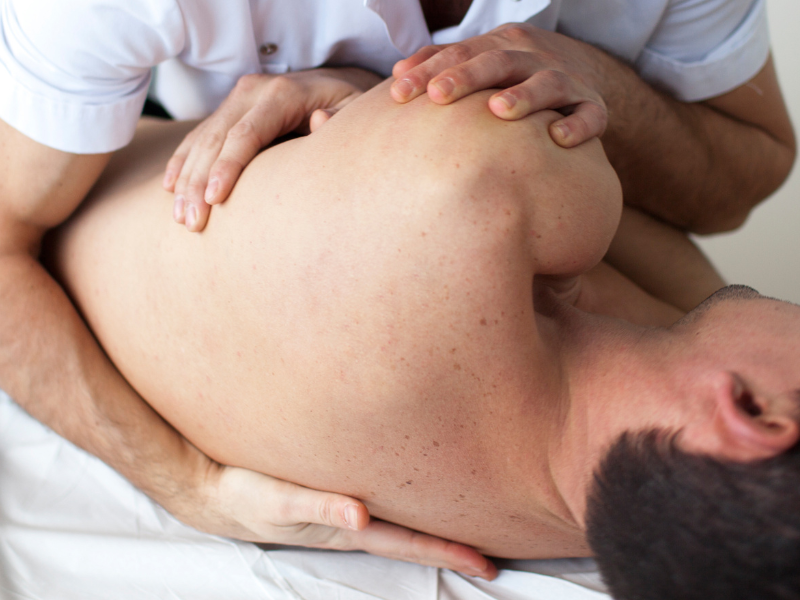Pilates is a well-known exercise system that focuses on core strength, flexibility, and alignment, but did you know that it can also work wonders for your posture and sleep quality?
Many people are unaware of the benefits that Pilates can bring to their daily lives beyond a toned body. In this blog post, we will delve into the advantages of practising Pilates for improving posture and sleep quality, and how these two aspects are interconnected.
The Importance of Good Posture
Good posture is essential for maintaining a healthy spine and preventing muscle imbalances, which can lead to discomfort, pain, and injury. Poor posture can result from various factors, including sedentary lifestyles, muscle weakness, and bad habits. Over time, poor posture can lead to chronic pain, reduced mobility, and decreased quality of life.
On the other hand, proper posture can help alleviate pain, improve mobility, and enhance overall wellness. Moreover, maintaining good posture can prevent the development of sleep disorders, such as sleep apnoea, by keeping the airways open and promoting optimal breathing during sleep.

Pilates and Posture
Pilates is a low-impact exercise system that focuses on the core muscles – the deep muscles of the abdomen, back, and pelvic floor. These muscles are responsible for supporting the spine and maintaining proper alignment throughout the body.
Here are some of the ways in which Pilates can help improve your posture:
Strengthening the core: A strong core is the foundation of good posture. Pilates exercises target the deep muscles in the abdomen, back, and pelvic floor, providing support and stability to the spine.
Enhancing body awareness: Pilates emphasizes mindful movement and body awareness, helping you become more conscious of your posture and alignment throughout the day.
Improving flexibility: Pilates exercises promote flexibility and balance, which are crucial for maintaining good posture. Increased flexibility allows for a greater range of motion and helps prevent muscle imbalances that can contribute to poor posture.
Correcting muscle imbalances: Many people have muscle imbalances due to sedentary lifestyles, poor posture, or previous injuries. Pilates exercises can help identify and correct these imbalances, leading to better alignment and reduced pain.
Promoting proper alignment: Pilates exercises are designed to promote proper alignment throughout the body. This focus on alignment helps to retrain the body to maintain good posture naturally.
The Connection Between Posture and Sleep
The relationship between posture and sleep is more significant than you might think. Poor posture can contribute to sleep disorders, such as sleep apnoea, by causing the airways to become partially or fully obstructed during sleep. Additionally, poor posture can lead to muscle tension, discomfort, and pain, making it difficult to fall asleep or stay asleep throughout the night.
By improving your posture through Pilates, you can help alleviate these sleep-related issues and enjoy a better night's rest. Furthermore, good posture can enhance breathing during sleep, leading to increased oxygen levels and a more restorative sleep experience.
The Benefits of Pilates for Sleep
Practising Pilates regularly can not only improve your posture but also lead to better sleep quality. Here are some of the ways in which Pilates can enhance your sleep:
Reducing stress and anxiety: Pilates promotes relaxation and stress reduction by focusing on mindful movement and deep breathing techniques. Lower stress levels can help you fall asleep more easily and enjoy a deeper, more restful sleep.
Alleviating pain and discomfort: By improving posture and alignment, Pilates can help alleviate pain and discomfort caused by muscle imbalances or poor posture. Less pain and discomfort during the night can lead to a more restful and uninterrupted sleep.
In addition to practising Pilates, using a therapeutic pillow designed to support proper alignment can further enhance the positive effects on your posture and sleep. A high-quality therapeutic pillow can help maintain the alignment achieved through Pilates, providing optimal support for your head, neck, and spine while you sleep. By promoting proper alignment and reducing pressure points, a therapeutic pillow can contribute to a more comfortable and restorative sleep experience. Combining Pilates with the use of a therapeutic pillow can create a powerful synergy that supports your journey towards better posture, improved quality of sleep, and overall wellness.
Do you want to learn more? Read our Frequently Asked Questions for...
Losing weight can indeed improve posture. When we carry excess weight, especially around the abdomen, it can put a strain on our back muscles and spine, leading to poor posture. By shedding those extra pounds, the load on our back is reduced, allowing our muscles to work more efficiently and our spine to align properly. Additionally, weight loss often involves strengthening exercises, such as core workouts, which can further enhance posture by strengthening the muscles that support the spine. So, by focusing on weight loss, you can positively impact your posture and overall spinal health.
Losing weight can have a significant impact on improving posture. By reducing the strain on our back muscles and aligning our spine correctly, weight loss helps us maintain a more upright and balanced posture. Incorporating exercises that strengthen the core muscles can further enhance posture. So, if you're looking to improve your posture, shedding those extra pounds through a combination of healthy eating and regular exercise can be a beneficial step towards achieving your goal.
 0
0 0
0To improve your posture, there are several simple steps you can take. Firstly, be mindful of your sitting and standing positions. When sitting, ensure your feet are flat on the floor and your back is straight against the chair. Avoid slouching or hunching over. When standing, distribute your weight evenly on both feet and keep your shoulders relaxed. Secondly, incorporate exercises that strengthen your core muscles, such as planks or yoga poses like the cat-cow stretch. These exercises help support your spine and promote better posture. Additionally, take regular breaks from sitting or standing for long periods to stretch and move around. Lastly, consider using ergonomic furniture or accessories, like a supportive chair or an adjustable desk, to maintain a good posture throughout the day. By following these tips, you can gradually improve your posture and reduce the risk of developing related discomfort or pain.
 0
0 0
0








